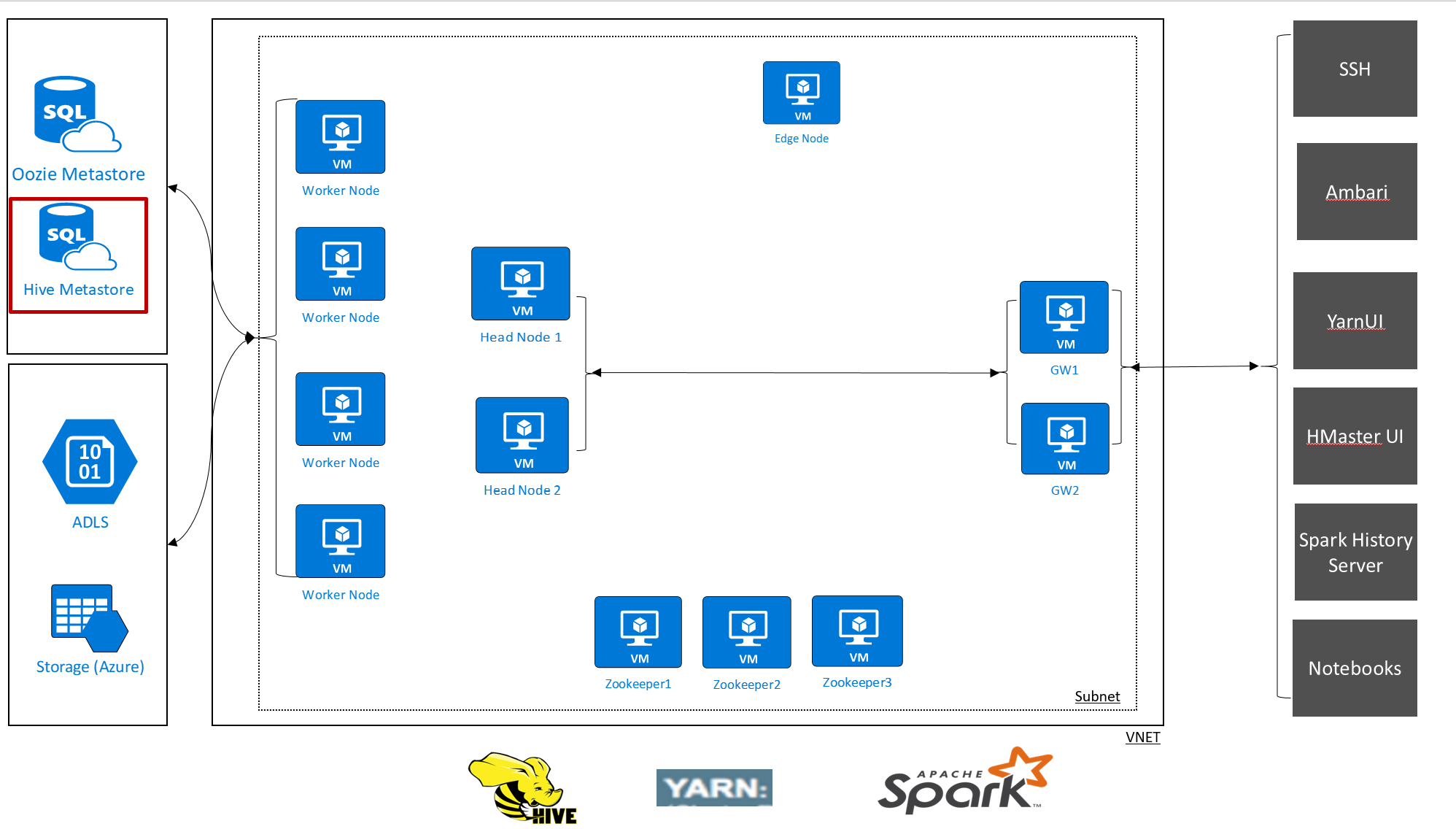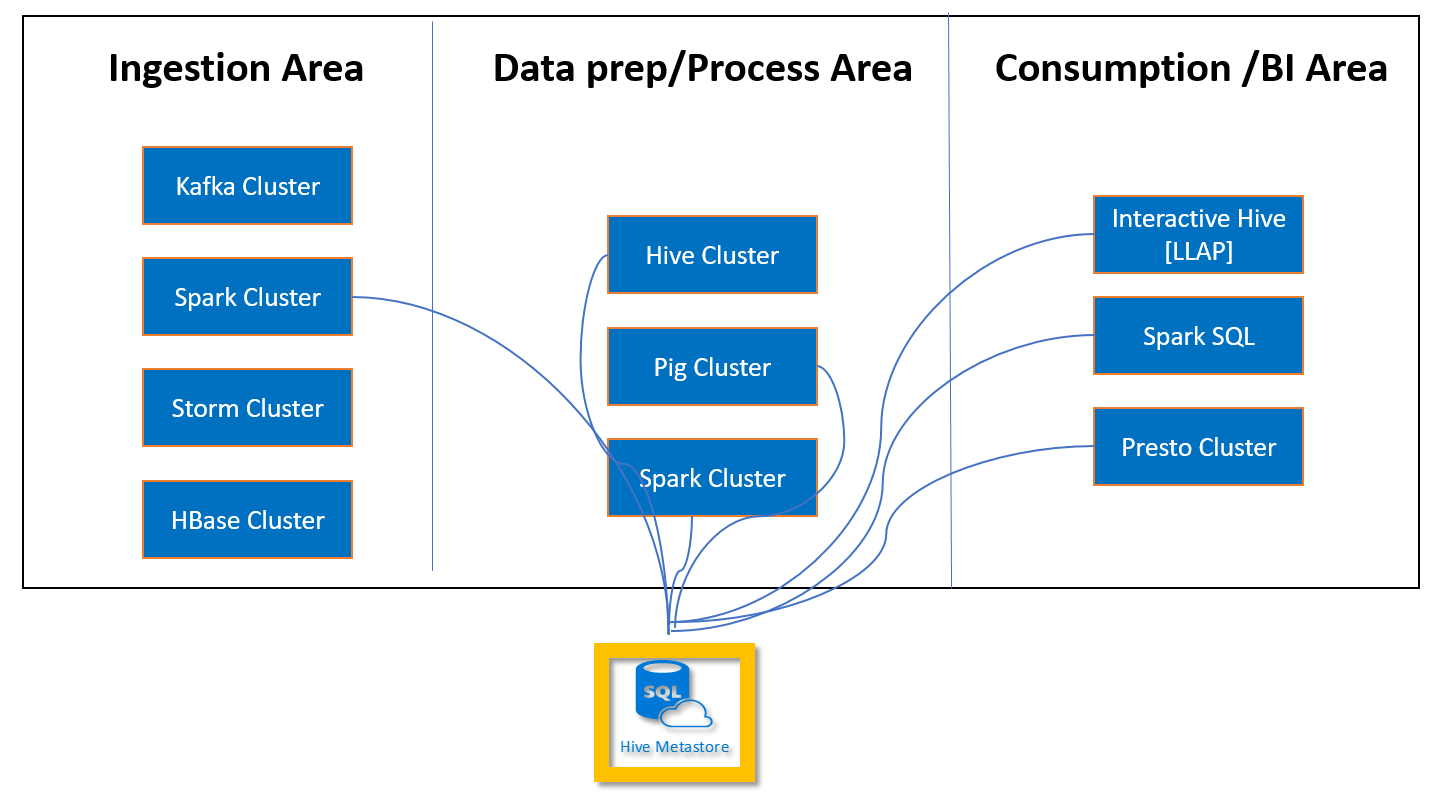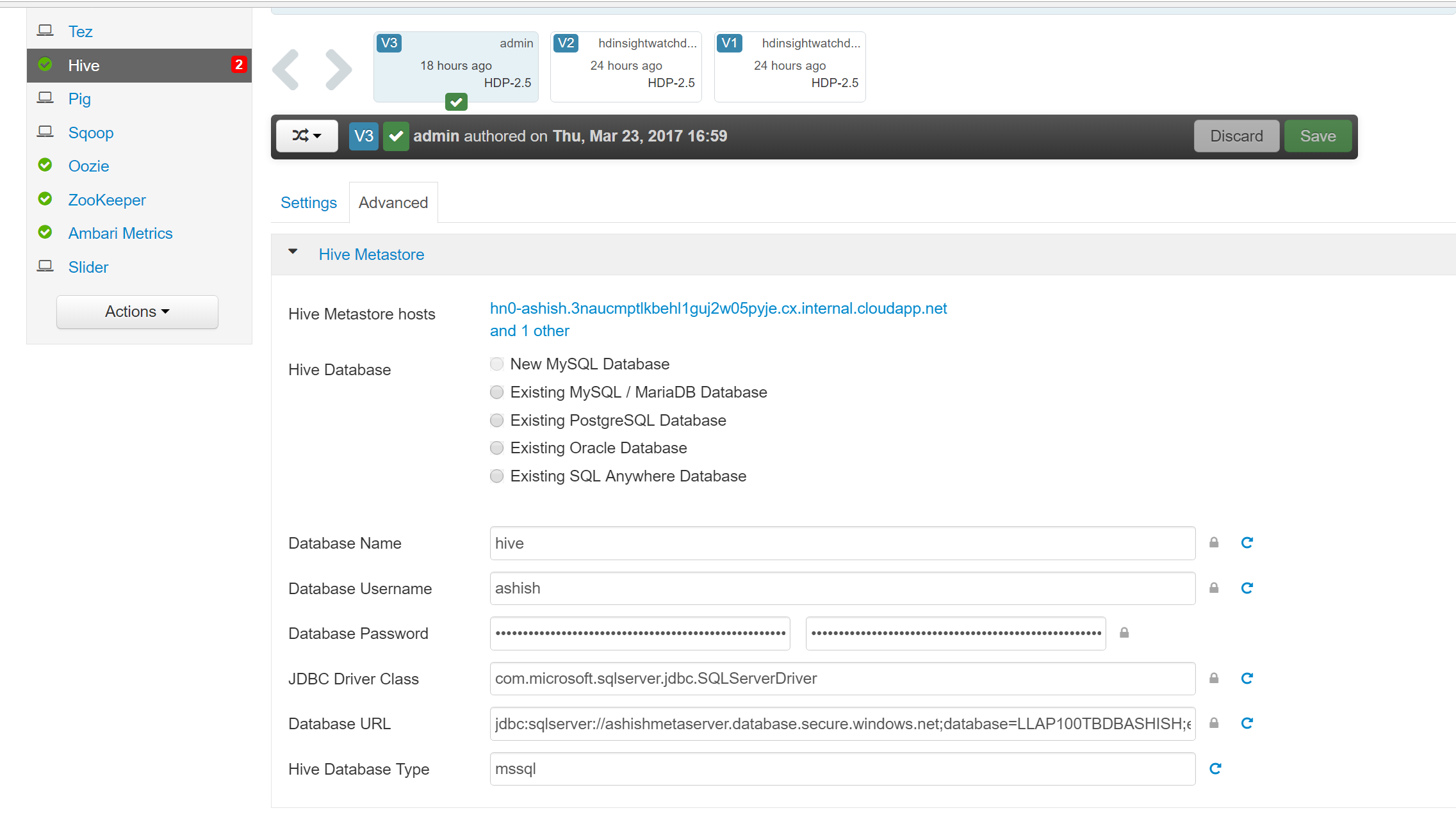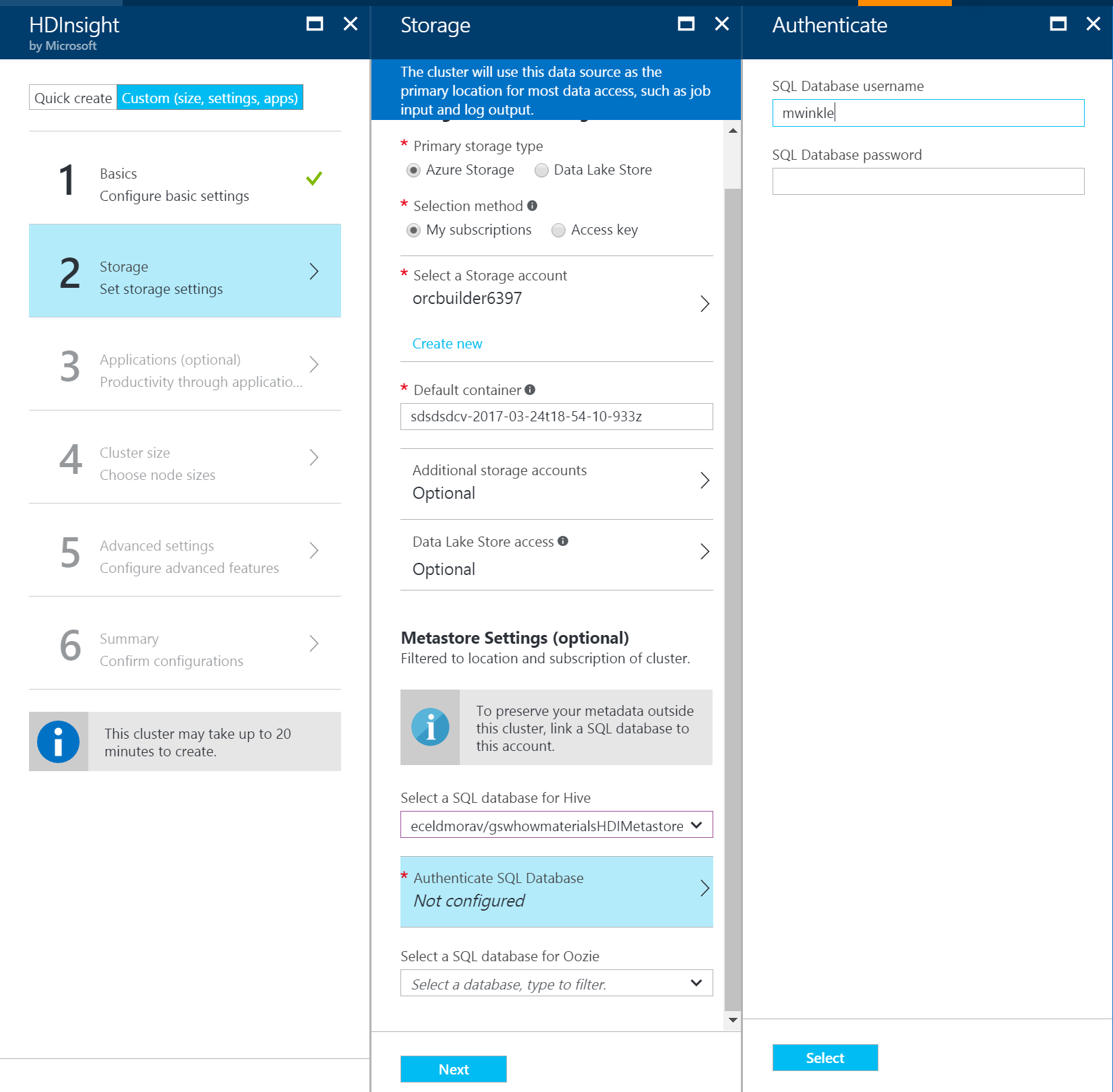Hive Metastore in HDInsight –Tips, Tricks & Best Practices
When you create a Hive table, the table definition (column names, data types, comments, etc.) are stored in the Hive Metastore. Hive Metastore is critical part of Hadoop architecture as it acts as a central schema repository which can be used by other access tools like Spark, Interactive Hive (LLAP), Presto, Pig and many other Big Data engines.

Image – HDInsight Architecture and Hive Metastore
In HDInsight, we use Azure SQL database as Hive Metastore. Azure SQL DB is relational database-as-a-service (DBaaS) hosted in the Azure and give availability SLA of 99.99.
There are two ways you can setup Metastore for your HDInsight clusters
HDInsight default Metastore – If you don’t provide a custom Metastore option, HDInsight will provision
Metastore with every cluster type. Here are some key considerations with default Metastore
- No additional cost. HDInsight provisions Metastore with every cluster type without any additional cost to you.
- Default Metastore is tied to the cluster life, when you delete the cluster your Metastore and metadata is also deleted
- You cannot share the Default Metastore with additional clusters.
- The default Metastore use Basic Azure SQL DB which gives you 5 DTU [Database Transaction limit]
This is generally good option for relatively simple workload where you don’t have multiple clusters and don’t need metadata preserved beyond the life cycle of the cluster.
Custom Metastore – HDInsight lets you pick custom Metastore. It’s a recommended approach for production clusters due to number reasons such as
- You bring your own Azure SQL database as Metastore
- As lifecycle of Metastore is not tied to a cluster lifecycle, you can create and delete clusters without worrying about the metadata loss.
- Custom Metastore lets you attach multiple clusters and cluster types to same Metastore. Example – Single Metastore can be shared across Interactive Hive, Hive and Spark clusters in HDInsight
- You pay for the cost of Metastore (Azure SQL DB)

Image – Typical shared custom Metastore scenario in HDInsight
Here are general HDinsight Hive Metastore best practices that you should consider
- Use custom Metastore whenever possible, this will help you separate Compute and Metadata
- Start with S2 tier which will give you 50 DTU and 250 GB of storage, you can always scale the database up in case you see bottlenecks
- Ensure that the Metastore created for one HDInsight cluster version is not shared across different HDInsight cluster versions. This is due to different Hive versions has different schemas. Example - Hive 1.2 and Hive 2.1 clusters trying to use same Metastore.
- Back-up your custom Metastore periodically for OOPS recovery and DR needs
- Keep Metastore and HDInsight cluster in same region
- Monitor your Metastore for performance and availability with Azure SQL DB Monitoring tools [Azure Portal , Azure Log Analytics]
How to select a custom Metastore during cluster creation?
You can easily point your cluster to a pre-created Azure SQL DB during cluster creation as well as after cluster is created. The option is under storage --> Metastore settings while creating a new Hadoop , Spark or Intractive Hive cluster from Azure portal
Additionally, You can add additional clusters to the Custom Metastore for Azure Portal as well as from Ambari configurations ( Hive -->Advanced)

As discussed above Hive Metastore is critical component of Hadoop and Spark architecture and picking up right Metastore strategy will certainly help you with right Architecture and user experience.

